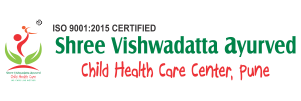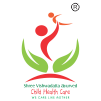Prakriti Parikshana
Prakriti is the Ayurvedic profile or unique psychosomatic temperament of an individual, encompassing his or her physical, functional and behavioral characteristics. In Ayurveda, Purusha or the body is considered to be a combination of various components like Dosha, Dhatu, Indriya, Manas, Buddhi and Atma. Like genetic coding, every individual has a different combination and is therefore a distinct entity. Dietary preferences, behavioral patterns, job options, performance abilities are all strikingly different between any two individuals.
Of various elements in the human body, the doshas – Vata, Pitta andKapha – control the functional aspects of the human body. Thus, Prakriti is determined by a unique combination of these three doshas (Tridoshas). Ayurveda considers that Prakriti is formed at the inception of human life and usually does not alter during the later phases.

Knowing your Prakriti can help you live a better life through:
- a suitable diet
- the right lifestyle
- knowing your strengths & weaknesses
- anticipating disease and preventing them
- better interaction with friends and family
- better marital relationship
Prakriti Test
This is a simple test to determine your unique psychosomatic temperament and help you make the right decisions for better living. Do remember, there is no good or bad Prakriti. To get the most accurate result you need to follow some precautions:
- Be completely honest with your answers
- Mention who you really are, not what you want to be
- Choose trends that endure over a long timeframe
- You will need to answer at least 22 questions in the first section and 18 questions in the second section
- Certain questions can have more than one answer
- This test does not purport to substitute an Ayurvedic physician’s direct examination and counseling.
- Completing both tests may take up to 30 minutes.
The Doshas & Prakriti
A combination of the three Doshas – Vata , Pitta and Kapha makes the Prakriti or individual’s characteristic personality. Ayurveda identifies 10 such combinations that make 10 types of persons.
Ekadoshaja – Prakriti with single dosha predominance
- Vataja Prakriti
- Pittaja Prakriti
- Kaphaja Prakriti
Dwandwaja – Prakriti with predominance of two doshas
- Vata & Pitta
- Vata-Pitta
- Pitta-Vata
- Vata & Kapha
- Vata-Kapha
- Kapha-Vat
- Pitta & Kapha
- Pitta-Kapha
- Kapha-Pitta
Tridoshaja – Prakriti with an equilibrium of three doshas
- Samaprakriti
Of the 10 groups, Ekadoshaja persons are extremely rare and can be difficult individuals. Dwandwaja persons are most common, with two doshas predominant in the system. Individuals who are Samaprakriti, with equilibrium of the three doshas, are the most desirable type of personality.
Specific features of different Prakriti
Each specific prakriti tends to follow a life-style to maintain the predominant dosha in its natural balance. Also, every prakriti has its own built-in strengths and also a set of inherent problems.
However, Ayurveda believes that prakriti is not entirely rigid and undergoes minor adjustments to keep you comfortable with changing situations. They also transform under certain conditions:
- Vayonupatini (Chronological Transformation) – Transformation due to age.
- Kalanupatini (Seasonal Transformation) – Transformation due to seasonal influences.
- Deshanupatini (Geo-Climatic Transformation) – Transformation due to variation in geo-climate conditions (e.g.- while traveling)
Know what each Prakriti signifies:
- Vata
- Pitta
Kapha - Vata
- Dark complexion, dry skin & thin built
- Scanty, wavy, dry and brittle hair
- Small eyes with curious looks
- Fast, unsteady gait
- Hoarse, rapid voice.
Food intake is generally irregular. Sweet and Salty tastes are generally preferred by Vata constitution.
A Vata personality bubbles with enthusiasm but lacks confidence. They are highly creative but lack the consistency needed to translate ideas into action. They have an excellent grasp but may not have good memory and retention. They excel in the field of fine arts but are poor performers in sports.
A Vata person is highly talkative, but lacks articulation. The confidence level of Vata prakriti is fragile. Anxiety levels of a Vata personality are normally high. Their endurance levels and tolerance to stress is poor.
Vata temperament is more often driven by impulsiveness. Thus, they are very generous. Also, they manage bodily energies in a poor fashion.
Due to lack of mental & physical consistency and endurance, their performance levels in every sphere of life tend to fluctuate often.
The health conscious Vata types need to remember that a salad meal is not a complete meal. This may help in losing weight but alongside it will give backaches, joint aches and cracking joints – a sure indication that Vata is vitiated.
The Vata prakriti child is typically never satisfied, always cranky and has a wiry appearance. He or she is more prone to diarrhoea and teething troubles with accompanying stomach distention or loose motion.
Vata constitution is prone to an imbalance in Vata. As a result, they are more frequently subjected to:
– Constitution problems, Flatulence
– Respiratory problems
– Anxiety neurosis & stress induced problems
– Immunity disorders
The Vata element in human personality contributes to cultural and scientific evolution of society through its creative approaches. In today’s context, we need the creativity and imagination of Vata personality in the fields of advertising, creative designing, research, academics etc. But they can’t take up high task professions.
Pitta
Bright complexion, delicate skin, medium built
Little, brown coloured straight hair
Bright eyes with penetrating vision
Fast & steady gait
Penetrating & commanding voice
Pitta persons have a good appetite and digestion. Stress eating is phenomenon of Pitta constitution. They have an unnoticeable enthusiasm but lack creativity.
A Pitta person is very articulate but is generally reserved about sharing. This personality is dominated by high level of conviction. An equally dominant feature is overconfidence.
Pitta personality always has a focused, self-centered mind. Cunning is a part of its target orientation. Its decisions are quick, bold and success oriented.
They excel in every activity they choose. For that purpose, they employ all resources indiscriminately.
Pitta constitutions do not allow you to be generous. They are proud of their achievements. At the same time, they are thankless to the contributions by others.
Relations with Pitta prakriti are also highly materialistic. They are generally shrewd and purposeful. One needs to oblige their supremacy to involve them emotionally.
A child with a Pitta prakriti is delicate but very intelligent. He or she cannot tolerate heat and cries if forced to wear warm clothes, rashes erupt at the slightest provocation and constipation is a word that does not exist in his or her vocabulary. The suckling Pitta prakriti child is so sensitive that if the mother eats spicy food, he or she gets ulcers in the mouth accompanied by fever – a sure sign that the Pitta dosha of the child is upset.
Pitta constitution is frequently prone to an imbalance in Pitta. As a result, they are frequently subjected to:
– Acidity and Peptic ulcers
– Skin diseases like hyper-sensitive reactions, Photo-dermatitis
– Inflammatory conditions in other organs
– Psycho-somatic diseases, due to persistent stress
– Frequency of food intake and concurrent aberrations in Pitta element, obesity and metabolic disorders are likely.
Pitta element in human personality contributes to a constant progression through an uncompromising attitude. In today’s context, the aggressive nature of Pitta and its performance orientation are in high demand in every sphere of life. Unfortunately, it is also likely to bring conflicts in the surrounding.
Kapha
Fair complexion, oily skin with a heavy built
Thick, black coloured & curly hair
Large eyes with a dreamy vision
Slow & steady gait
Prolonged, feeble voice
Food habits are generally poor. Tend to eat less and can withstand hunger and thirst. Aversion to sweet dishes is a common feature in Kapha personality.
A steady and reliable mind is an asset with Kapha prakriti, but it lacks self-initiation. Their decision is measured and always correct. At the same time they are slow. They are bestowed with an excellent memory, but grasping may be poor.
Kapha prakriti has an excellent endurance and exemplary stress tolerance. It has a deep-rooted determination but lacks an initiative to start. Its temperament is highly conservative. Kapha prakriti tends towards perfectionism. They are highly quality conscious.
Kapha prakriti is caring and deeply involved in emotional relations. However, they fail to convey emotional feelings due to a reserved attitude. The temperament is highly reliable and faithful.
Kapha constitution is frequently prone to an imbalance in Kapha. As a result, they are frequently subjected to:
Indigestion
- Metabolic conditions like diabetes
- Hyper-reactive immunity problems like auto-immune disorders
- Metabolic disorders due to sedentary nature
Kapha element in human personality provides a constructive stability in all phases of human endeavour. It is the root of determination and excellent endurance. In today’s context, we need the stability of Kapha prakriti in all productive areas. Maybe their role is restricted to routine tasks.

